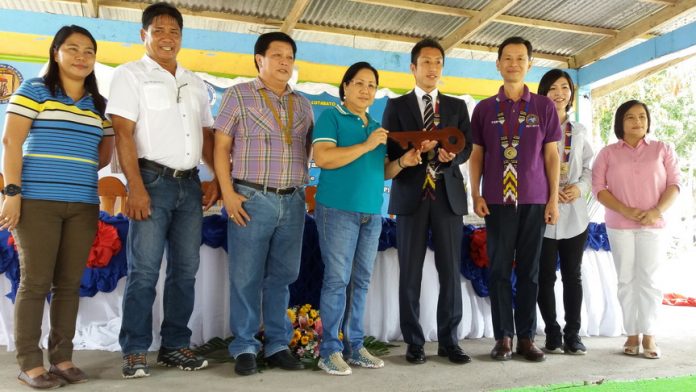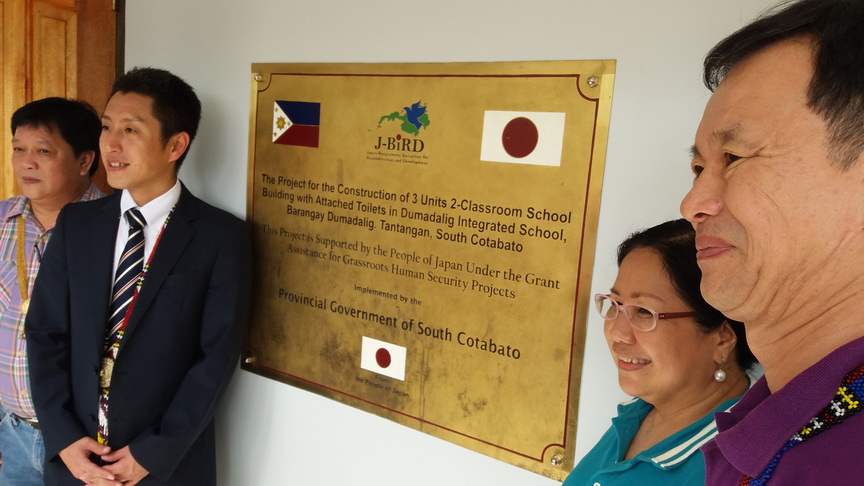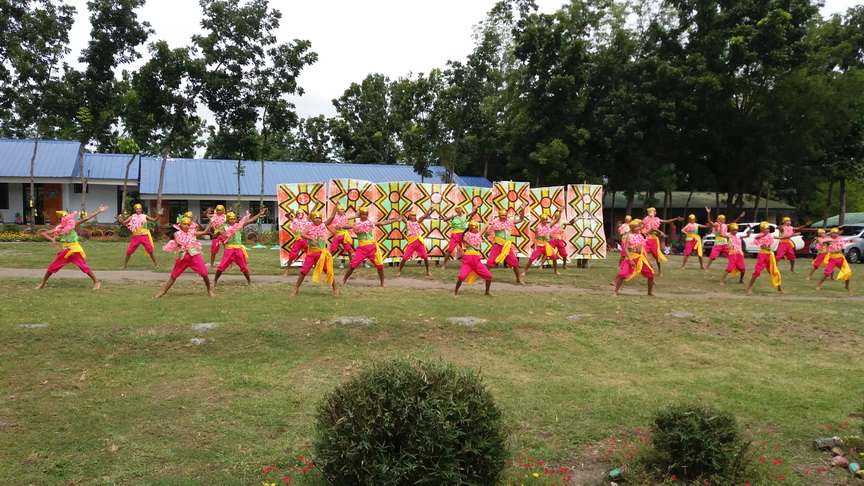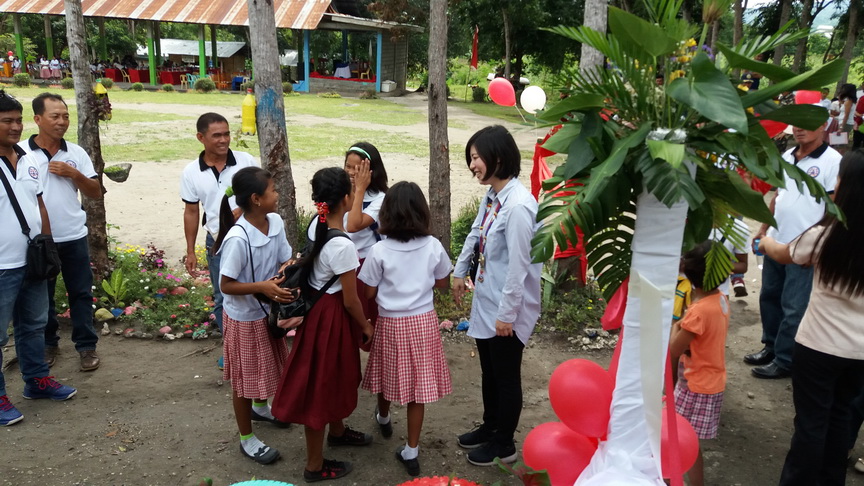
“We know that great things start from small beginnings. Just like the little drops of water that can make an ocean. The Japanese government supports community-based organizations that are working at the grassroots level. We believe that improvements in the individual lives may seem to have small effect, but if we continue the support everywhere, it will lead to the development of the country.”
This was the central message given by Hiroyuki Enoki, the First Secretary and Labour Attaché of the Embassy of Japan in the Philippines during the turnover of the three units of two-classroom buildings last November 24, 2016 at the Integrated School in Barangay Dumadalig in Tantangan, South Cotabato.
The ceremony was graced by South Cotabato Gov. Daisy P. Avance-Fuentes, Vice Gov. Vicente R. De Jesus, Vice Mayor Time Joy Torres-Gonzales and Yosuke Tamabayashi, First Secretary and Advisor to Socio-Economic Assistance Component (SEAC) in the International Monitoring Team (IMT).
Teachers, students, parents and village officials were present during the occasion as it was viewed as an important event for Dumadalig Integrated School.
“Daghang salamat (Thanks a lot),” were the only words Ana, a Grade III pupil, uttered when asked of her impressions while Samson, a Grade IV pupil, said the new classrooms were spacious that could accommodate more students.

Ana and Samson are among the 789 school children enrolled for this school year in Dumadalig Integrated School.
Dumadalig lies in the border of South Cotabato and the province of Maguindanao where residents, majority of them farmers, rely much of their income through upland farming.
Twenty-five percent of the populace in the village are Muslims, 15% Ilocano, 15% Ilonggo and the rest are B’laans, one of the major Indigenous People (IP) groups in South Cotabato.
“These are upland areas. They don’t have the benefit of a sustainable income from irrigated areas. There’s a big population of IPs and there’s difficulty in ensuring that their children stay in school because many cannot afford,” Governor Fuentes said in her message.
The governor also emphasized that cases of early marriages as young as 12 years old continue to be a practice in IP communities in the area.
Ensuring quality education by providing enough facilities may help delay early marriages as children are encouraged to stay in school until they reach 17 to 18 years old.

“We look at the facility as classrooms but for the people of Dumadalig these are transformative tools to ensure that the cycle of poverty may be broken,” she added.
Through the school facilities, she said the children of Dumadalig, when they reach the ages 17 or 18 can be better equipped in facing the challenges in life. They now have an option to avail of the scholarships and financial assistance to continue schooling in tertiary education; or, if forced to enter marriage lives, become better parents of their children.
“That’s how meaningful this intervention is,” Governor Fuentes pointed out.
Jocelyn, an IP student in Grade VI, said they had congested classrooms, and, in order to accommodate the students, the school administration resort conducting two classes in a single room.
Other grade levels had to use the school’s gym for classes, she added, a situation she described as difficult for their learning process.
“The additional school buildings are blessings to us,” she said.
The school project in Dumadalig was part of the Official Development Assistance (ODA) of Japan under its Grant Assistance for Grassroots Human Security Projects (GGP).
The grant, that was released in 2015, amounted to $97,334 or P4 million. It was facilitated through Japan-Bangsamoro Initiatives for Reconstruction and Development (J-BIRD). The construction of the school buildings were done by the provincial government of South Cotabato.
The three units with classroom buildings are designed with attached toilets and school furniture such as arm chairs, tables and cabinets for the purpose of providing the students with safe and proper learning environment.

Japan’s government is a top ODA donor to the Philippines. The GGP, launched in the country in 1989 with the aim of reducing poverty by helping communities engaged in grassroots activities, has already funded a total of 519 projects.
Japan has been intensively implementing GGP and other ODA projects in the country since 2006 particularly in the conflict-affected areas in Mindanao through J-BIRD. The amount of grants has already reached over $200 million.
More than 50 school buildings were already constructed since 2006 under the program in conflict-affected areas in Mindanao, said Yosuke Tamabayashi, who also emphasized the role of SEAC-IMT in the project implementation.
He added that IMT has provided development initiatives in the Bangsamoro through SEAC and will continue to monitor the implementation of the ceasefire agreement.
“Parallel with ceasefire monitoring, socio-economic assistance activity is very important for peace building,” Tamabayashi said.
Enoki also assured Filipinos that the Japanese government will continue to support to peace process between the GRP and the MILF, including the initiatives of community-based organizations working in communities and projects aimed to provide the children in conflict-affected areas a brighter future.
“Just like in education, bright futures for our children can be achieved if we can provide them first with quality basic education. One way to do this is by having small but meaningful steps such as constructing primary and secondary educational facilities, especially in small and poor communities, so that children will have a place where they can learn useful knowledge, skills and values that will make them better members of society,” Enoki said.






